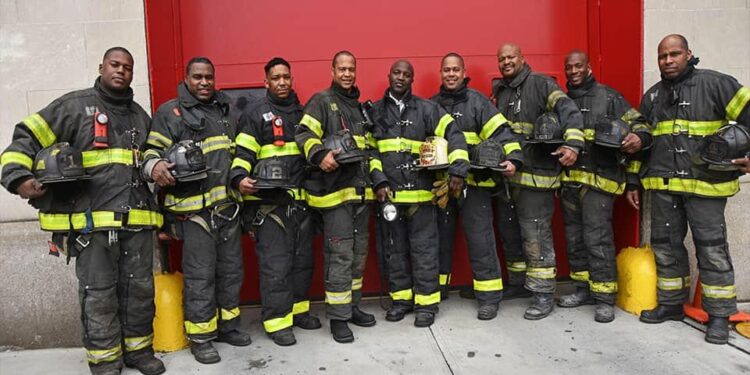Germany is grappling with an unprecedented wave of wildfires this summer, pushing firefighters to the brink of exhaustion as they battle blazes that have engulfed vast stretches of forest and countryside. With scorching temperatures and dry conditions fueling the spread, emergency services are stretched thin, highlighting the growing challenges posed by climate change and the urgent need for enhanced firefighting resources. This article examines the ongoing firefighting efforts, the impact on affected communities, and the broader implications for Germany’s approach to wildfire management.
Firefighters Battle Relentless Flames Amidst Rising Temperatures
As temperatures soar well above seasonal averages, firefighting teams across Germany are facing unprecedented challenges. The relentless spread of wildfires has drained resources and tested the endurance of crews battling flames that have engulfed thousands of hectares of forestland. Many firefighters describe the situation as exhausting, pushed to their physical and mental limits by long shifts amid hazardous conditions. The escalating heatwaves have only intensified the risk, complicating containment efforts and threatening nearby communities.
Key factors impacting firefighting operations include:
- Record-breaking heat accelerating fire spread
- Dry vegetation acting as tinder in multiple regions
- Limited access to remote affected areas
- Continuous strain on water and air support resources
| Region | Area Burned (hectares) | Firefighter Deployment |
|---|---|---|
| Brandenburg | 4,200 | 320 |
| Saxony | 3,750 | 280 |
| Lower Saxony | 2,900 | 250 |
Community Support and Resource Mobilization Critical to Relief Efforts
As wildfires continue to ravage vast areas of Germany, the role of community engagement has become indispensable in bolstering relief operations. Local volunteers, charities, and civic groups have rapidly mobilized to provide essential supplies, temporary shelter, and emotional support for those affected. Coordination between municipal authorities and grassroots organizations ensures a flow of resources that supplements the overstretched firefighting teams, helping to mitigate the immediate humanitarian impact.
Key contributions from community efforts include:
- Establishment of donation centers for food, clothing, and medical aid
- Transportation services to evacuate vulnerable residents
- Setting up communication networks bridging authorities and residents
| Support Type | Community Role | Impact |
|---|---|---|
| Material Donations | Local businesses and residents | Ensures steady supplies for relief centers |
| Volunteer Staffing | Civic groups and NGOs | Extends manpower for frontline aid |
| Information Dissemination | Social media and community leaders | Promotes awareness and safe evacuation |
Experts Urge Enhanced Prevention Strategies to Mitigate Future Wildfires
Amid the escalating wildfire crisis, specialists emphasize the critical need to bolster community resilience and incorporate cutting-edge technologies into fire management. Integrated landscape management approaches, such as controlled burns and reforestation with fire-resistant species, are being prioritized to reduce available fuel and restore natural fire cycles. Additionally, experts advocate for improved early warning systems that leverage satellite data and AI-driven predictive models to enhance real-time monitoring and rapid response capabilities.
Policy reforms are also under scrutiny, with a focus on strengthening cross-border cooperation and increasing funding for fire prevention research. Communities in high-risk zones are urged to adopt comprehensive fire preparedness plans that include:
- Regular evacuation drills and educational campaigns
- Upgraded infrastructure to withstand extreme heat and fire
- Enhanced coordination between firefighting units and local authorities
| Prevention Strategy | Expected Benefit | Implementation Timeline |
|---|---|---|
| Controlled Burns | Reduce fire fuel load | 1-3 years |
| Fire-Resistant Reforestation | Enhance landscape resilience | 2-5 years |
| AI Early Warning Systems | Improve detection and response | Immediate to 1 year |
| Community Education | Increase public preparedness | Ongoing |
Concluding Remarks
As Germany continues to battle unprecedented wildfires amid prolonged dry conditions, firefighters remain on the front lines, grappling with exhaustion and limited resources. Authorities are urging increased support and vigilance as efforts to contain the blazes persist. The situation underscores the growing challenges posed by climate change, with experts warning that such extreme weather events may become more frequent in the years ahead.
















